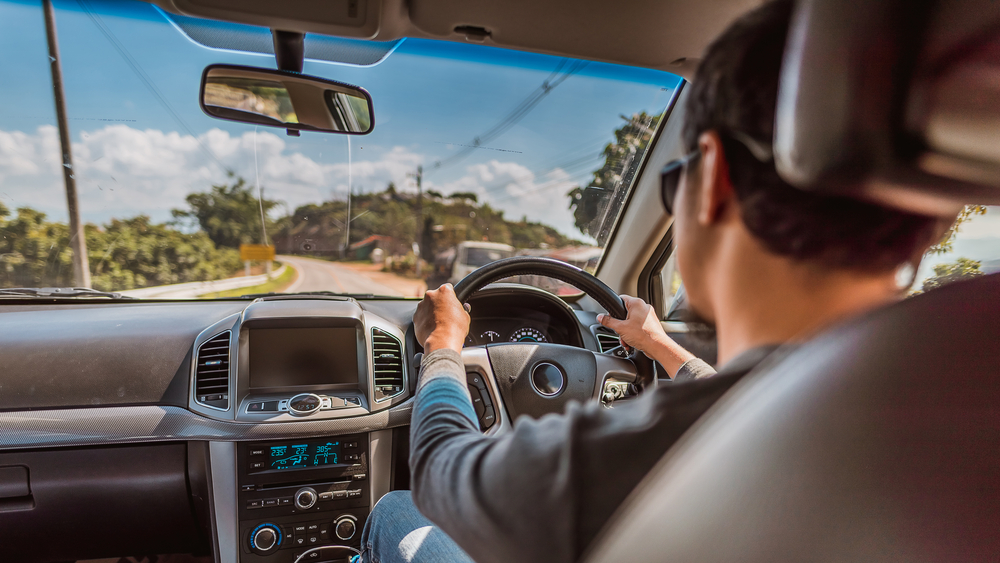Driving long distances requires a special set of abilities and factors to guarantee comfort and safety all along the way. Staying comfortable and aware is essential whether you’re taking on a long commute or setting out on a cross-country journey. We’ll cover a ton of useful advice and techniques in this in-depth guide to make long drives easier for you while also protecting your health and driving ability.
- Plan Your Route and Schedule: Make sure your route and schedule are well thought out before you set out on your journey. Consider variables like the distance, expected traffic, and any rest stops along the route. Plotting your route ahead of time makes traveling easier and more efficient by enabling you to foresee possible obstacles.

- Get Enough Sleep Before Leaving: Make sure you get enough sleep before starting a long road trip. In order to reduce fatigue and improve alertness when driving, make sure you get a full night’s sleep the night before. Getting enough sleep enhances one’s ability to drive and increases road safety in general.
- Plan Regular Breaks: Throughout your trip, plan regular breaks to combat driver fatigue. Every two hours or 100 miles, try to take a break to stretch, rehydrate, and relax. Long drives can be made more comfortable and safe by taking short breaks, which also help to ease stiffness and lower the risk of fatigue.
- Keep Yourself Hydrated and Nourished: Bring along plenty of water and wholesome snacks to keep you well-fed and hydrated while traveling. Choose for nutrient-dense, light foods that give you energy throughout the day without making you feel sleepy. Sustaining energy levels and being alert while driving on the road depend on eating and drinking the right foods.
- Maintain Correct Posture: When driving, make sure your posture is correct to provide the best possible comfort and support. To attain ergonomic alignment, adjust your mirrors, seat, and steering wheel. To reduce fatigue and discomfort, sit up straight, place your back against the seat, and place your hands correctly on the steering wheel.
- Use Cruise Control Sensibly: To keep a constant speed and lessen driver fatigue, use cruise control on lengthy highway segments. On the other hand, exercise caution when using cruise control and pay attention to how the road is changing. If you want to keep control of your car in bad weather or during periods of high traffic, don’t rely on cruise control.
- Remain Alert and Engaged: Avoid monotony and boredom by remaining alert and engaged when operating a vehicle. To stay focused on the road ahead and keep your mind active, tune in to energetic music, podcasts, or audiobooks. To keep your mind sharp and avoid getting tired, talk to other drivers or play interactive driving games.
- Keep an Eye on Your Comfort: To improve your driving comfort, pay attention to the cues your body gives you and adjust as needed. To guarantee the most comfortable travel, adjust the ventilation, temperature, and seat position. For long periods of sitting, use lumbar rolls or supportive cushions to ease pressure points and minimize discomfort.
- Be Aware of the Weather: Pay attention to the most recent weather reports for the area you’re traveling through, and modify your driving style accordingly. To safely negotiate inclement weather, such as rain, snow, or strong winds, use caution and adaptability. In any weather condition, adjust your speed and keep a safe following distance to guarantee a safe and comfortable ride.
- Knowing When to Rest: Be aware of your limitations and give rest the priority it deserves. If you start to feel too tired or sleepy, stop and take a break in a secure area. Driving while fatigued or intoxicated is never something you should force yourself to do since it greatly raises your risk of collisions.

Conclusion
Long-distance driving has its own set of difficulties, but it can also be a fun experience if you prepare and plan ahead. You can maintain your composure, safety, and alertness while driving for extended periods of time by adopting these crucial driving habits. To maintain optimal driving performance and guarantee an enjoyable and stress-free road trip, never forget to prioritize rest, hydration, and good posture.

